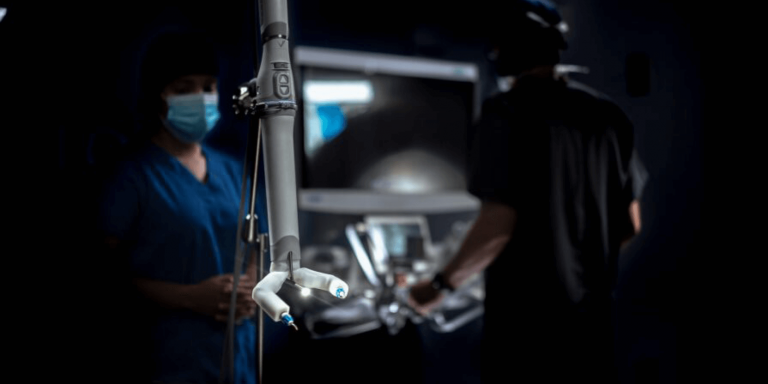
In collaboration with Virtual Incision, a robotics company, engineers at the University of Nebraska have developed MIRA, a small remote-controlled surgical robot that can perform surgery remotely. NASA plans to send it to the International Space Station (ISS) by 2024 to conduct a variety of experiments, including those related to weightlessness.
Based in Lincoln, Nebraska, founded by Shane Farritor and Dmitry Oleynikov, and holding more than 200 patents and patent applications, Virtual Incision is developing MIRA, an accessible robot-assisted surgery platform. This portable robot that weighs only two pounds allows surgeons to perform minimally invasive single incision surgeries in real time in any hospital without the need for the space or infrastructure required by other robotic systems. The system is designed to enable complex multi-quadrant abdominal surgeries using a simple handheld device.
For example, a robot-assisted right hemicolectomy procedure was performed using MIRA via a single incision in the belly button during a clinical study of MIRA under a U.S. Food and Drug Administration (FDA) investigational device exemption (IDE).
Testing on the Space Station
NASA awarded a $100,000 grant, intended to prepare MIRA for shipment to the ISS, to the University of Nebraska-Lincoln under the (EPSCoR) program. Shane Farritor is a professor of engineering at the University of Nebraska-Lincoln and has led research on the potential use of surgical robots in space.
John Murphy, CEO of Virtual Incision, states:
“The Virtual Incision MIRA platform was designed to provide the power of a central robot-assisted surgical device in a miniaturized size, with the goal of making RAS accessible in any operating room on the planet. Working with NASA on the space station will test how MIRA can make surgery accessible in even the most remote locations.”
MIRA will thus be tested by simulating surgical operations. She will work in an experimental locker the size of a microwave oven where she will perform tasks such as cutting simulated tissue and manipulating small objects.
Shane Farritor, co-founder and chief technology officer at Virtual Incision, states:
“We expect the robot to behave differently in space. Any force or play in the joints will result in inaccuracy in zero gravity.”
He adds:
“NASA has ambitious plans for long-duration space travel, and it is important to test the capabilities of the technology that can be beneficial on missions measured in months and years. MIRA continues to push the boundaries of what is possible in RAS, and we are pleased with its performance so far in clinical trials. We are excited to go further and help identify what may be possible in the future as space travel becomes more and more of a reality for humanity.”
Translated from La plateforme miniature de chirurgie assistée par robot MIRA devrait rejoindre l’ISS en 2024









